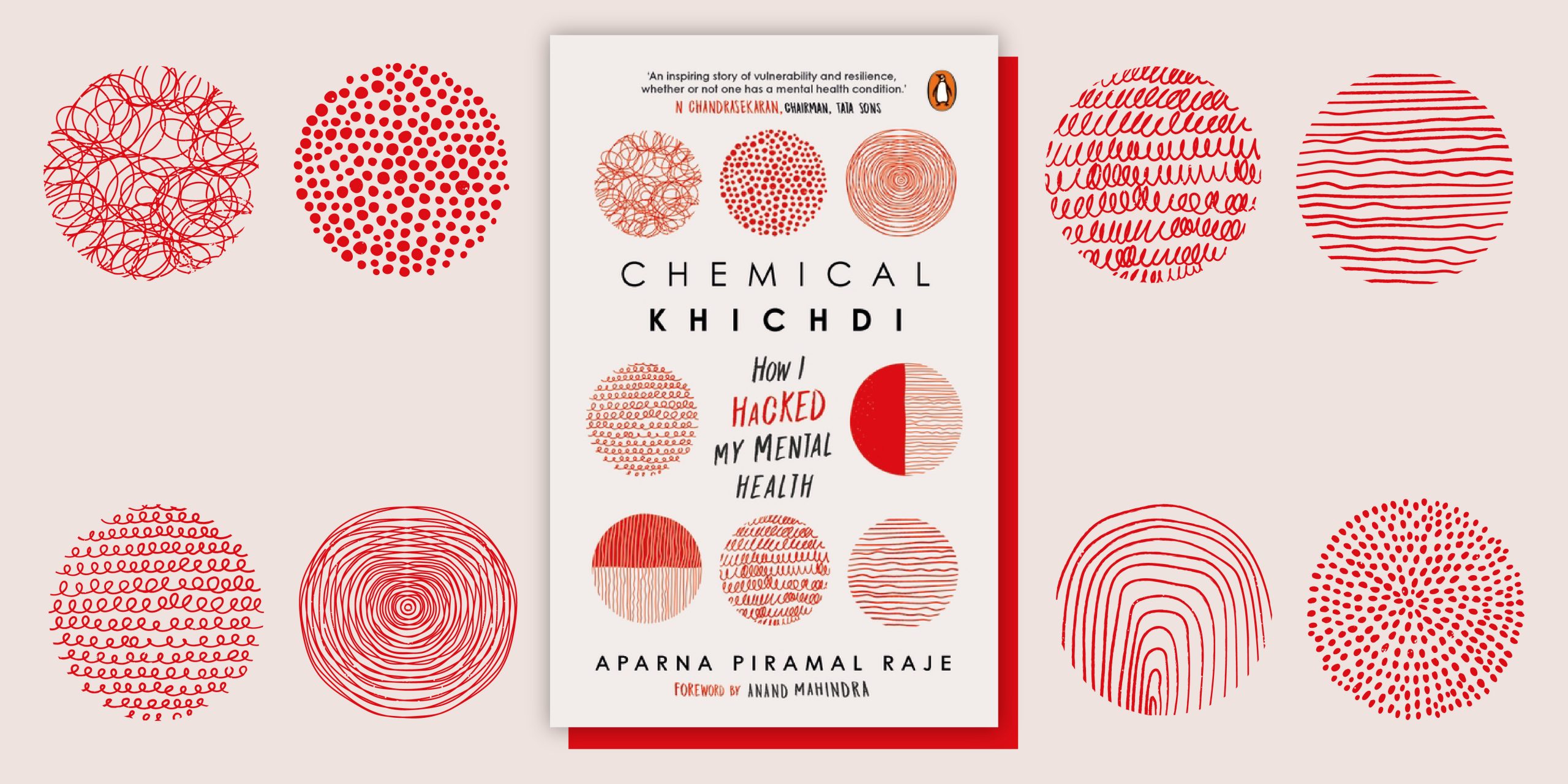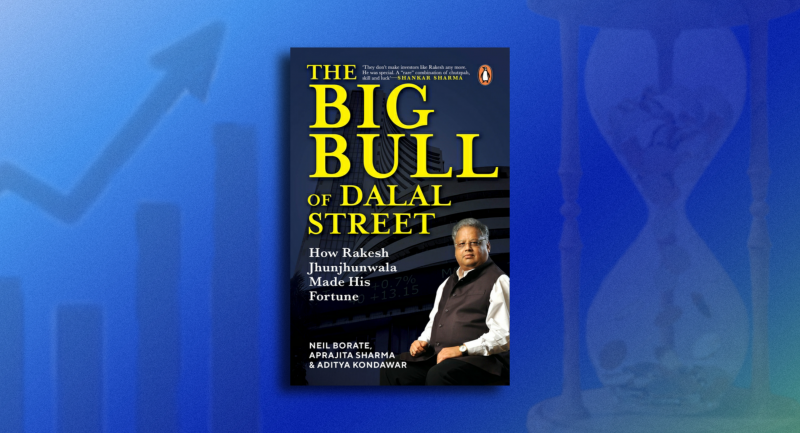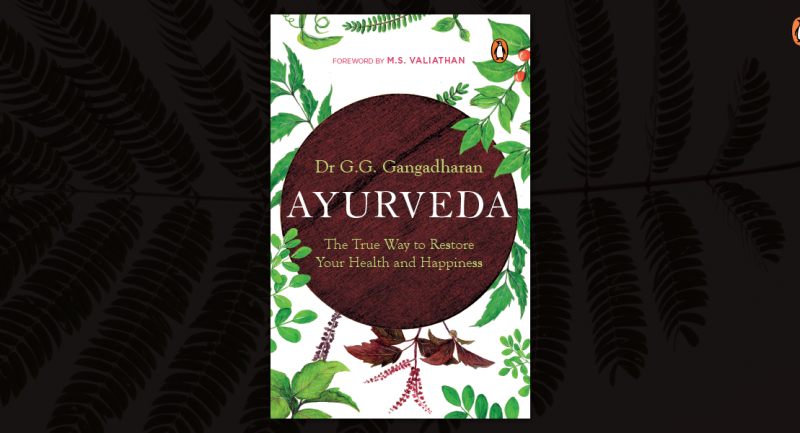
Perhaps the most stigmatized aspect of mental illness is talking about suicide. This is why spreading awareness about mental health is even more important today than ever. Even with a large amount of information and resources like counseling constantly at our disposal, there are small steps we can all take towards unlearning myths about mental illness. This is where stories like that of Aparna Piramal Raje step in.
On this World Suicide Prevention Day, we’re sharing an excerpt from her memoir Chemical Khichdi where she candidly talks about suicidal ideation.
*

Chemical Khichdi
Aparna Piramal Raje
Turning Point
There are no headlines today
No cocktail launch parties, or awards ceremonies
No business-class seats and frequent-flier miles
There is the private knowledge,
That today was a day
Where nothing was written
Which would later be regretted.
That today was a day
Where it didn’t occur to me
How easy it would be to jump off a building.
Today, I didn’t have to dismiss the thought.
Today, there’s a London bus made out of a cardboard box.
There is camping under a blanket
Strung between two wooden dining chairs, in the living room.
Today, there are
No moments of despair
No delusions of grandeur
Instead, an attitude of gratitude
Moments of simplicity and spontaneity
And the promise of purpose.
One of my favourite poems, I wrote Turning Point to mark a personal milestone: after several weeks of struggling with depression, and waking up every day to a sense of hopelessness, I finally managed to rid myself of suicidal thoughts. Of course, I sat at the edge of my bed and cried, but I also felt much better after writing it. It felt like a private milestone.
I have never actually harmed myself or made any attempt to do so, but there was a distinct period of my life, for a large part of 2013, in which I was confronted by a large, bleak void, every morning. Life seemed just – empty.
Given that my manic episode at the ashram was one of my most lethal, it was little surprise that I had to contend with depression for as long as I did. I knew I could get onto additional medication to elevate my spirits – and there were several sleepless nights when I nearly called Dr. Sharma and asked him to do so – but Amit and I were committed to finding a solution without additional medication, and we did.
I didn’t lie around on the sofa, or in my bedroom – my days were fairly busy with work and family commitments. There were interviews to be conducted and copy to be filed. My colleagues were friendly and stimulating.
Home life was also a pillar. Our apartment in Mahim had a rare view of the Arabian sea and of one of Mumbai’s nicest public parks, a hidden gem called Dhote Udyan. The rhythm of the waves and the canopy of greenery outside my windows were enough to lift any melancholy spirits. But I felt unhappy and vacant. I couldn’t find joy or happiness in anything around me.
And in a city full of skyscrapers, jumping off one of them seemed more preferable than wrestling with this inner black hole every day. I remember, at one point, mentally comparing the available building options to see which one seemed the most viable, my parents’ home or mine. I even once made it to my building’s terrace before turning back, scowling at myself for even having come this far. I rejected the option every time it crossed my mind, because I knew I didn’t want to be defeated by my illness.
Any well-intentioned onlooker would have urged to me to consider my obligations to my family, and to desist from this line of thought. It is not that I was ready to abandon my family. It was just that my self-esteem was so low, during those months, that I honestly didn’t think it would make a big difference to anyone in the long run, if I wasn’t around anymore. I really felt they wouldn’t notice my absence, or it wouldn’t matter – when the truth is, of course, that they would be devastated. Depressed and despairing, my duties to my family were not motivating factors at all. Perhaps I am not alone in making this admission.
In fact, it was the other way around – it was my family who helped me to overcome my black hole, even though they may not have gauged its true depths. I think I was quite good at concealing it. As I will explain in more detail a little bit later, they helped to see the daily joys of simple family life.
But it took several months before I could rid myself fully of semi-suicidal notions, as can be seen from the timing of the poem. Luckily, they haven’t returned; a fact I know my family and friends will be most relieved to hear.
Slowly, over the course of a few months, I left the black hole behind. And then one day in November, I found myself writing this poem, to celebrate the fact that I had, actually, much to celebrate in life, and even more to look forward to. As the first paragraph suggests, I was also finally ready to shed my preoccupation with all the markers of a successful business life – the seemingly glittery lifestyle, the award ceremonies and the hoopla. Something just as meaningful, if not more, was waiting to be discovered.
*
Get your copy of Chemical Khichdi from your nearest bookstore or visit Amazon to order.









